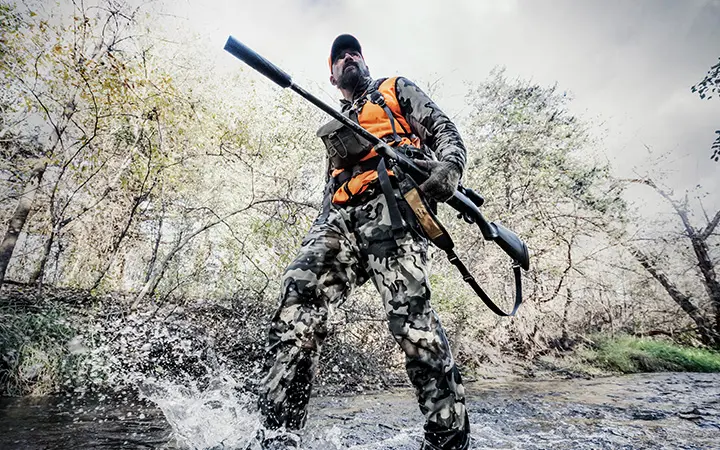Last Updated on May 26, 2025 by Muhammad Ramzan
Hunting trips can be an exhilarating and rewarding experience, offering an opportunity to connect with nature, test your skills, and enjoy some of the most scenic landscapes. However, a successful hunting trip requires careful planning and preparation to ensure safety, enjoyment, and the best possible outcome. Whether you’re a seasoned hunter or a beginner, understanding the essential elements of a well-organized hunting trip will make all the difference.
1. Choose the Right Location
One of the most important aspects of any hunting trip is choosing the right location. The area you select should match your target species, skill level, and desired hunting experience. Do some research on hunting zones, and consider factors like local wildlife regulations, accessibility, and the terrain. Areas with abundant wildlife and favorable weather conditions often make for the best trips.
For those looking to make their hunting experience truly memorable, it can be helpful to check resources that specialize in hunting trips. Many websites offer details on the best hunting grounds in your region or internationally, making it easier to plan the perfect hunt. Websites like Hunting trips provide extensive lists of hunting destinations, helping you find the ideal spot for your next adventure.
2. Pack the Right Gear
Packing the proper gear is essential for a successful hunting trip. This includes your hunting rifle or bow, ammunition, binoculars, camouflage clothing, and any safety gear you may need. A good quality backpack for carrying your gear is also a must. Make sure to pack enough food, water, and survival supplies to keep you sustained throughout your hunt.
Weather can be unpredictable, so it’s important to bring appropriate clothing layers. Waterproof clothing, thermal layers, and boots that are both durable and comfortable are crucial for spending hours in the field. Consider packing a first aid kit and a multi-tool for emergencies.
3. Understand Local Regulations
Before you set off, it’s important to understand the hunting regulations in the area where you’ll be hunting. These rules are in place to ensure that hunting practices are sustainable and that wildlife populations remain healthy. Make sure you know the season dates, bag limits, and any restrictions on the species you’re hunting.
If you’re unfamiliar with the area, consider hiring a local guide or booking a guided hunting trip. Guides are well-versed in the local laws and can provide valuable insights into the best hunting practices for the region.
4. Plan for Safety
Safety should always be your top priority during any hunting trip. Make sure you’re familiar with how to properly handle your weapon and are following all relevant safety guidelines. If you’re hunting with a group, ensure that everyone is aware of the rules, such as safe shooting distances and communication signals.
Carrying a GPS or compass is advisable, especially in remote areas, to help prevent getting lost. It’s also a good idea to share your trip details with a friend or family member in case of emergencies.
5. Consider the Best Time for Hunting
Timing can make a huge difference in the success of your hunting trip. Many hunters prefer early mornings and late afternoons when animals are most active. However, the ideal time to hunt can vary depending on the species you’re targeting and the season. Research your target species’ habits to choose the best time of day for your hunt.
If you’re unsure when to go, check with local experts or hunting communities. Local knowledge can help you determine the peak hunting periods for certain animals, ensuring that you have the best chance of success.
6. Be Prepared for the Hunt
Once you’ve arrived at your hunting destination, take some time to scout the area. Knowing the terrain, water sources, and animal patterns can improve your chances of success. If possible, go on a practice run to get a feel for the land before the actual hunt begins.
Be patient, stay quiet, and move slowly as you approach your prey. Patience and observation are key components of any hunting trip. Sometimes, the hunt requires stillness and silence, allowing you to wait for the perfect shot.
7. Enjoy the Experience
Finally, remember that a hunting trip isn’t just about bagging your prey—it’s about enjoying the experience. Take in the sights and sounds of nature, appreciate the skills you’re developing, and learn from each outing. Whether you hunt for sport or for sustenance, each trip is a chance to grow and enjoy the great outdoors.
By taking the time to plan your hunting trip carefully, you can ensure that your experience is safe, successful, and enjoyable. From choosing the right location and gear to understanding local regulations and planning for safety, each step will bring you closer to having the best hunting trip possible.
Discover exciting changes on the Mcdo menu with fresh beverage options. Explore new flavors that cater to diverse taste buds. Quench your thirst with refreshing drinks that promise an enjoyable dining experience.
In the world of fast food, McDonald’s is continuously redefining its offerings, especially in the beverage department. Whether you’re grabbing a quick meal or just popping in for a refreshing drink, McDonald’s beverages can surprise and delight your taste buds. Let’s dive into some of their latest innovations in drinks, which are making waves with their unique flavors and refreshing choices.










